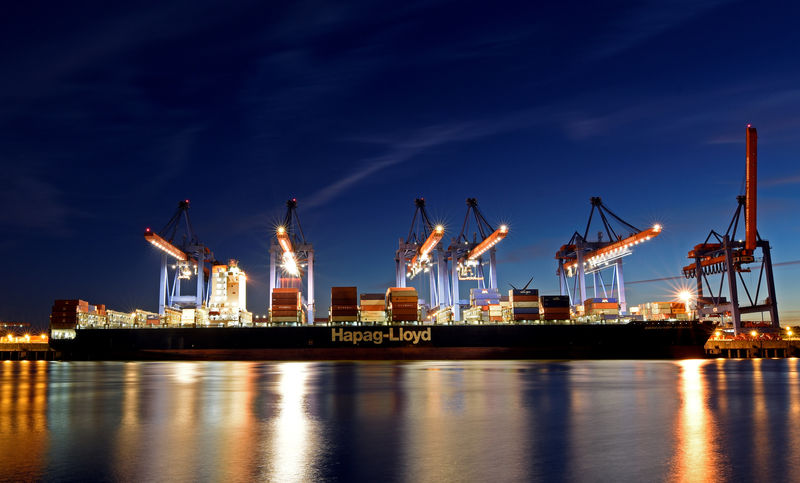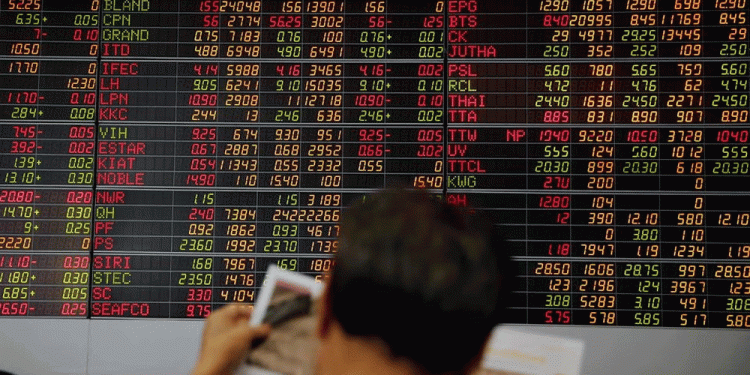 © Reuters. FILE PHOTO: A Hapag Lloyd containership is loaded at the shipping terminal Altenwerder in the harbour of Hamburg
© Reuters. FILE PHOTO: A Hapag Lloyd containership is loaded at the shipping terminal Altenwerder in the harbour of HamburgBERLIN (Reuters) – German economic growth will bounce back in the second quarter after taking a breather at the beginning of the year, the DIW economic institute said on Thursday.
Industrial production plunged in February, leading some analysts to forecast an end to Germany’s eight-year boom, but DIW said it was just a dip, which it blamed on a flu epidemic, strikes and an above-average number of holidays.
Gross domestic product growth is expected to slow to 0.4 percent on the quarter in the first three months of the year after 0.6 percent in the final quarter of 2017, it said.
“The German economy is losing a bit of momentum,” DIW economist Ferdinand Fichtner said.
But given full order books, companies are likely to make up for a relatively weak period in the coming months and boost overall economic growth which the DIW institute projected to come in at around 0.7 percent in the second quarter.
“The German economy will continue to grow noticeably because it’s profiting from strong global demand,” DIW economist Simon Junker said.
His optimism echoed the German government’s, which said on Wednesday that the economy remained buoyant, despite slightly lowering its growth forecast for this year. [nL8N1S24NW]
Even if record-high employment should grow less dynamically in coming months, the number of employees is continuing to rise noticeably, the institute said. It added that wage growth would also pick up due to unprecedented labor shortages.
Fusion Media or anyone involved with Fusion Media will not accept any liability for loss or damage as a result of reliance on the information including data, quotes, charts and buy/sell signals contained within this website. Please be fully informed regarding the risks and costs associated with trading the financial markets, it is one of the riskiest investment forms possible.
Source: Investing.com


























